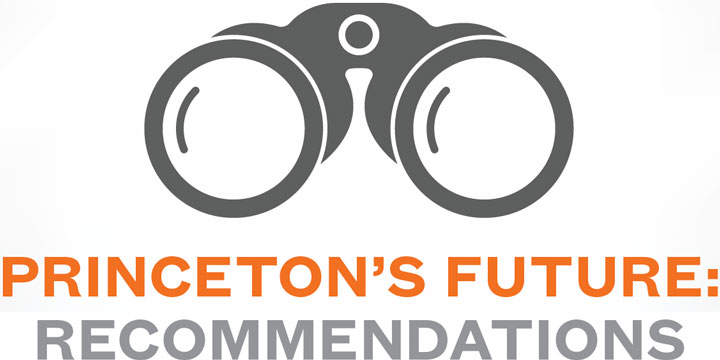Alumni Affairs Report: Expand Affinity-Group Conferences
As part of PAW’s continuing coverage of the work of strategic-planning study groups created by President Eisgruber ’83, this issue describes a self-study report by the Office of Alumni Affairs.
 The report noted the affinity-group conferences held on campus over the past decade — for black alumni; Asian American, Latino, and Native American alumni; women alums; Graduate School alumni; LGBT alumni; and Jewish alumni — and said the concept has been “stunningly successful.” It recommended that two affinity-based conferences be held each year as part of a broader effort to reach out to “unengaged or lesser engaged alumni” and to increase the diversity of alumni participation in University life.
The report noted the affinity-group conferences held on campus over the past decade — for black alumni; Asian American, Latino, and Native American alumni; women alums; Graduate School alumni; LGBT alumni; and Jewish alumni — and said the concept has been “stunningly successful.” It recommended that two affinity-based conferences be held each year as part of a broader effort to reach out to “unengaged or lesser engaged alumni” and to increase the diversity of alumni participation in University life.
Citing “lively interest” among alumni, the report said the alumni office should provide guidance and support for the creation of new affinity and interest groups, which it said could be based on careers (such as entrepreneurs or those in real estate or the arts), religious affiliation, shared experiences (such as veterans), and affiliation with campus groups.
Recommendations also included working with Career Services to strengthen career guidance and mentoring to students and interested alumni.
The self-study said “it may make sense” to move Alumni Day from February into March and that more activities could be added to the fall Homecoming Weekend.
According to the report, Princeton’s alumni population has grown about 25 percent over the past 15 years to more than 90,000. Women represent 30 percent of that group, Graduate School alumni 29 percent, and international alumni almost 10 percent. Almost 30 percent of alumni graduated in the last 15 years.
Noting “the importance of sustaining and serving Princeton’s intensely engaged and generously supportive alumni community,” the report urged more staffing for Alumni Affairs and more support for volunteers.











No responses yet